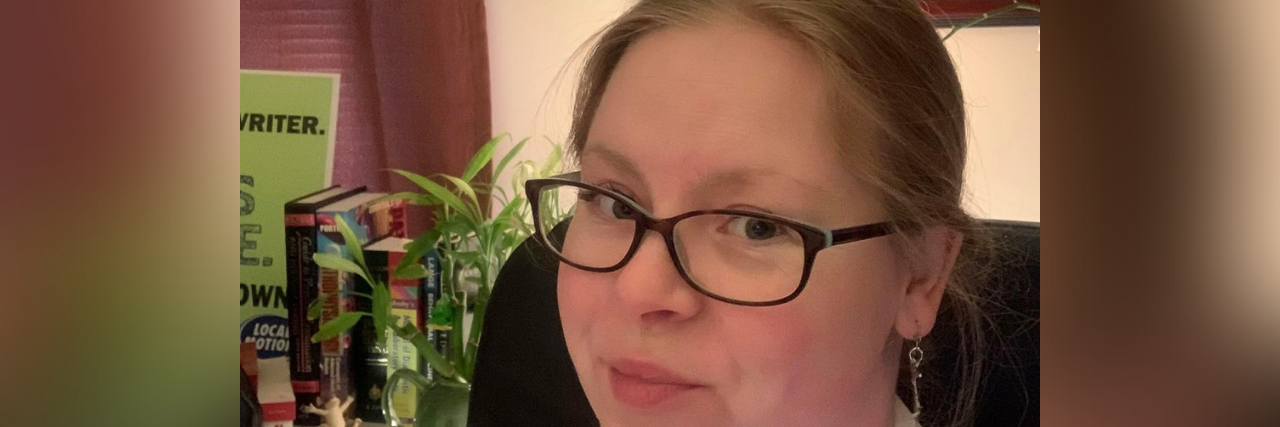Energy is such a precious commodity; you never know when it will run out until it does. Living with gastroparesis, a condition characterized by decreased motility of the stomach, is not easy because you lose your energy. Gastroparesis can be downright deadly, but so far, I am one of the lucky ones.
You shouldn’t have to depend on luck when you’re given a diagnosis like gastroparesis.
The only reason I am still standing, and still working today, is because of the educational privileges I’ve accrued over my career. Many patients living with this disorder receive substandard medical care because the lack of research, training and empathy in the medical world. When patients lack the ability to communicate their symptoms to their medical team, they are dismissed. But when medical teams lack the language to understand or diagnosis complicated conditions, we die.
I would be remiss if I didn’t disclose that I was a practicing physician assistant with over a decade of experience in primary, urgent and rural healthcare. My background includes a combination of pharmaceutical sales, medical and creative writing, and clinical practice. Yet when I was diagnosed with gastroparesis in my early 30s, I almost lost it all.
I found food to be a comfort, and, like many women approaching mid-age, I struggled with keeping my weight in balance. When the symptoms started, I did what any medical provider would do:
Start with lifestyle modifications then move up the diagnostic pathway to medical interventions
For three months, I adjusted my pillows, I avoided highly acidic foods and I didn’t drink alcohol, but the heartburn progressed to nocturnal reflux which progressed to incapacitating pain. Concerned about my family history of Barrett’s esophagitis and gastrointestinal cancers, I made an appointment with my primary care provider.
I was dismissed.
I advised her that three months of over-the-counter interventions wasn’t cutting it and I asked to be tested for H. Pylori (a bacterial infection that is associated with
peptic ulcer disease). She pushed back saying it wasn’t needed; but when I pushed, I got it. The test was negative.
She wanted to stop.
I didn’t because the pain was too much, and I started to fear the worst case scenario based on my family history and my personal fears. It was starting to affect my daily activities and so I insisted on a referral to a gastroenterologist. She refused instead offering me a follow up with her in six months.
Normally, this is where many gastroparesis patients falter. They fall through the cracks of inadequately trained primary care physicians and clinicians and they suffer in silence. Sometimes, they lose enough weight to get the attention of a specialist but often they are advised it is “all in their head” and brushed off until they simply stop trying. They might be given an SSRI without addressing the underlying conditions or they might get a few doses of antiemetic medication and a follow up for 15 minutes in six months. While there is absolutely a strong mind-body connection and a lot of overlap with psychosomatic symptoms, I also knew that there was a physical pathology underlying my clinical presentation. I used my medical privilege to schedule my own appointment with a gastroenterologist for an endoscope.
The next day, my PCP called me and said she would refer me.
What happened next shook my world. I was thrown into the subspecialty of gastric motility disorders, but I was observing it from the perspective of a provider turned patient. An endoscope followed by a barium swallow followed by a gastric emptying study revealed I had gastroparesis. Full stop.
The evaluation fully stopped.
That’s it.
The gastroenterologist shook his head, told me it was good I lost the weight because I was obese to begin with (comfort foods be damned) and that he could put me on several medications, but none were indicated for long term use, one wasn’t even approved by the FDA and they were all rather expensive.
As the weight fell off, my options fell away, and soon I didn’t have enough body weight to maintain my previous life. I lost all my energy. I lost my light and I almost lost my life.
The last time I saw my diagnosing gastroenterologist, he advised me that losing too much weight “wasn’t a good look” and I was at risk for a feeding tube. No diagnosis, no prognosis, just dismal options to prevent me from wasting away and a shrug acknowledging he didn’t know what he didn’t know. I made the difficult decision to pursue a different course of treatment, and to seek a second opinion outside of my insurance bubble, but those opinions take time.
Now I am lucky to be working with a medical team that sees me and understands patients are not just numbers on a page. I am lucky to be respected enough to command their attention and so when I suggest my leading differential diagnosis, I am listened to. Individuals living with gastroparesis know far more than the average clinician does and we are your greatest source of understanding.
Listen to us and support us, because we have lost so much more than the average person can understand. As a physician assistant, as an advocate and as a patient I know that with improved care and communication we can not only survive, but learn how to thrive once more.
Photo provided by contributor

